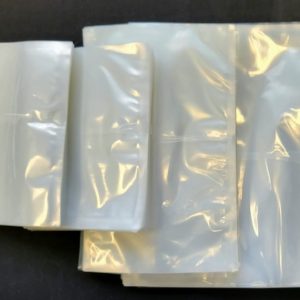Our canine companions enrich our lives with their boundless energy, loyalty, and affection. As pet owners, it is our responsibility to ensure that our four-legged friends lead happy and healthy lives. Among the various aspects of their well-being, dental health is often overlooked. Canine dental issues, such as plaque buildup, tartar formation, gum disease, and bad breath, can significantly impact a dog’s overall health. While regular veterinary check-ups are essential, incorporating dental chews into your dog’s routine can be a delightful and effective way to promote optimal oral health. In this blog, we will delve into the intricate details of how dental chews contribute to canine dental health and why they are more than just a treat.
The Canine Dental Conundrum
Dogs, unlike humans, lack the ability to brush their teeth, making them susceptible to a range of dental problems. The canine dental conundrum encompasses issues such as plaque and tartar buildup, which can lead to gum disease, bad breath, and even tooth loss. These issues not only impact a dog’s oral health but can also have systemic effects on their overall well-being. To address these concerns, a comprehensive approach to dental care, including at-home preventive measures, is crucial.
Dental Chews: A Multifaceted Solution
Dental chews are specially formulated to address the unique dental needs of dogs. They offer a myriad of benefits that go beyond just being a tasty treat:
- Plaque and Tartar Control: Dental chews are designed with a textured surface that promotes chewing. This mechanical action helps remove plaque—a sticky film of bacteria—before it has the chance to harden into tartar. Tartar can contribute to gum disease and other dental issues, so the regular use of dental chews acts as a preventive measure against these problems.
- Gum Stimulation: Chewing is a natural behavior for dogs, and dental chews provide a satisfying outlet for this instinct. The act of chewing stimulates the gums, increasing blood flow to the area. This stimulation is essential for maintaining healthy gum tissue and can help prevent the onset of gum disease.
- Bad Breath Banishment: Bad breath is a common issue among dogs and can be a sign of underlying dental problems. Dental chews often contain natural breath fresheners such as mint or parsley, which help combat bad breath. Addressing the root cause of bad breath through regular use of dental chews makes the bonding experience with your furry friend more enjoyable.
- Entertainment and Stress Relief: Beyond the dental benefits, chewing serves as a natural stress reliever for dogs. Dogs, like humans, can experience stress and anxiety. Providing them with dental chews not only contributes to their oral health but also offers mental stimulation, alleviating boredom and stress. This is particularly beneficial for dogs left alone for extended periods or those prone to anxiety.
- Nutritional Support: Many dental chews are enriched with essential vitamins and minerals. These added nutrients contribute to overall canine health, complementing your dog’s diet and supporting their well-being beyond just dental care. Choosing a dental chew with nutritional benefits can be a valuable addition to your dog’s daily routine.
Choosing the Right Dental Chew
Selecting the right dental chew for your dog involves careful consideration of several factors:
- Size Matters: Ensure that the dental chew is appropriate for your dog’s size. Chews that are too small may pose a choking hazard, while those that are too large may be ineffective. Choose a size that encourages chewing without risking safety.
- Texture: The texture of the dental chew plays a crucial role. Some chews are designed to be softer, making them suitable for puppies and older dogs with dental issues. Others are more robust and cater to stronger chewers. Understanding your dog’s chewing habits and preferences will guide you in selecting the most suitable texture.
- Ingredients: Read the ingredient list carefully. Opt for dental chews made from high-quality, natural ingredients. Avoid products with artificial additives, excessive sugars, or ingredients that may cause allergies. A healthy dental chew should contribute positively to your dog’s overall well-being.
- Veterinary Approval: Before introducing a new dental chew into your dog’s routine, consult with your veterinarian. This is especially crucial if your dog has pre-existing health conditions or is on a specific diet. Your vet can provide personalized advice on the most suitable options based on your dog’s individual needs.
Conclusion
In the grand tapestry of pet care, dental health is a crucial thread that should not be overlooked. Dental chews offer a delightful and effective solution to the canine dental conundrum, providing more than just a tasty treat. By incorporating dental chews into your dog’s routine and combining them with regular veterinary check-ups, you can ensure that your furry companion enjoys a lifetime of dental delights and overall good health. Remember, a healthy smile contributes to a happy and thriving life for your canine friend.











